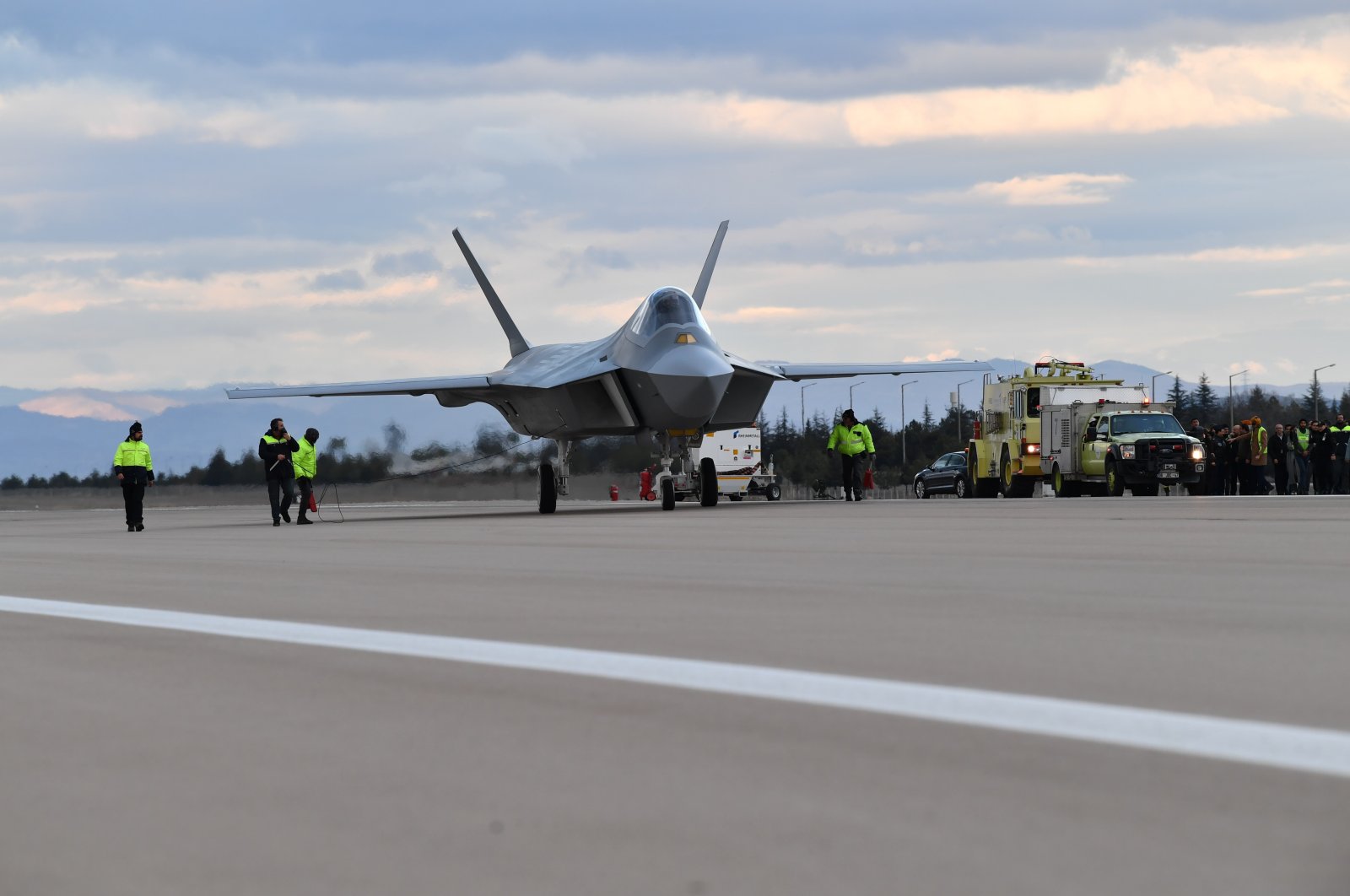Türkiye’s top engine manufacturer on Tuesday said a unit that will power the nation’s first domestically developed fighter jet is almost ready, in what will mark the industry’s latest advancement in a homegrown drive to curb external dependency on critical equipment.
The fifth-generation combat aircraft, KAAN, seeks to upgrade Türkiye’s air force and replace its aging F-16 fleet. Officials have said it is expected to perform an inaugural flight soon.
Mass production of the initial batch is envisaged as of 2028. KAAN is planned to be powered by an F110 engine, developed by General Electric, before eventually being replaced with a domestically built power unit manufactured by TUSAŞ Engine Industries (TEI).
A joint venture between Turkish Aerospace Industries (TAI) and GE Aerospace, TEI is engaged in developing and producing engines for both aircraft and missiles.
It has developed PD170, tailored for unmanned aerial vehicles (UAVs), including those of the drone magnate Baykar and TAI’s own drones, including Aksungur, which has been equipped with such power unit for some time, according to Mahmut Faruk Akşit, the head of TEI.
“Aksungur is about to enter mass production with our engine. It will be included in the inventory and used by our army with our engine within this year,” Akşit told Anadolu Agency (AA).
Akşit emphasized that they have the technology to develop and produce all types of UAV engines that Türkiye needs.
“We produce UAV engines with high technology compared to our competitors. Starting from scratch, we are more flexible and use the latest technology,” he said.
“Although we have competitors worldwide, our engine is truly powerful and better than all of them.”
TEI made the inaugural sale of the PD170 engine last year, according to Akşit.
“At the beginning of this year, we made the first delivery,” he said, adding that they had signed a contract for the second sale and multiple deliveries were scheduled for 2024.
“Despite being a new engine, it is being preferred from abroad,” he added.
Akşit informed that they are preparing to launch mass production of an engine that will power choppers, including Türkiye’s first domestically developed heavy-class attack helicopter, the Atak-2.
The company is currently developing its most powerful turbofan engine to date, the TEI-TF10000, an upgraded version of the earlier TEI-TF6000 turbofan engine.
Both prototypes were displayed at last year’s edition of Türkiye’s largest aviation and technology festival, Teknofest, in the Aegean province of Izmir.
The TF10000, envisaged to produce 6,000 lbf of thrust and power many manned and unmanned aviation platforms, including KAAN, is almost complete, Akşit said.
“We have only aircraft engines left. We brought the first engine carcass of the TEI-TF6000/TEI-TF10000 family to Teknofest in Izmir. We are now at a much more advanced level than the version there. Our aircraft engine is nearing completion,” he noted.
Akşit said the Presidency of Defense Industries (SSB) would make a necessary announcement. “It will be operational soon,” he added.
Unveiled publicly last year, KAAN is one of the most important projects in Türkiye’s history. The warplane made a runway debut and completed its first taxi test after starting its engines for the first time in mid-March last year.
KAAN is aimed at replacing the aging F-16 fleet in the inventory of the Air Forces Command, which is planned to be phased out starting in the 2030s. The project was launched in 2016.
The jet will make Türkiye one of the few countries with the infrastructure and technology to produce a fifth-generation combat aircraft.
Akşit underlined the importance they attach to research and development activities. He noted that designing engines alone is not enough; they also have to develop parts of subsystems involving high technology.
He stated that they had successfully accomplished this, emphasizing that they had produced single-crystal turbine blades for the first time in Türkiye. Akşit highlighted that their domestically produced material showed better resistance in high-temperature strength tests compared to samples obtained from abroad.
He also stated that the company would make deliveries of the TEI-PD180-ST engine, also tailored for the UAVs, this year.
TEI made $345 million worth of exports last year, said Akşit.
“In 2024, we want to increase this by $100 million to reach $445 million. These figures also include the engines we started delivering this year,” he explained.
“Our exports used to consist only of aircraft engine parts sold worldwide. For the first time, we are now setting our national, original engine as an export target.”




















































Be First to Comment